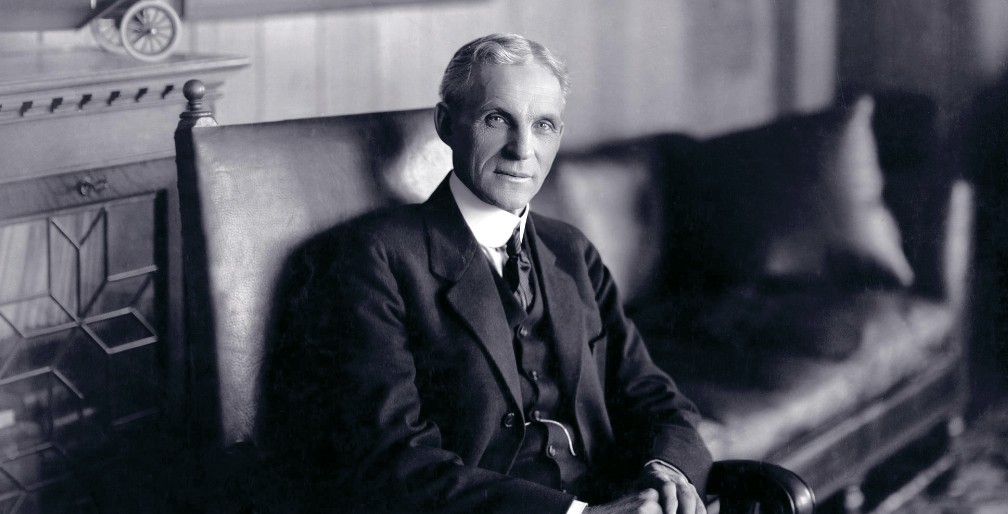Fortune CEO Alan Murray on Making Moral Leadership Happen
It was an unprecedented gathering with an unusual purpose: In December 2016, CEOs of some of the world’s largest companies, along with global labor and technology scholars, church leaders and philanthropists, gathered in Vatican City. Their goal was to propose actionable measures the business sector could take to combat global environmental, education and health disparities while spreading the benefits of economic growth.
The Fortune and Time Global Forum drew the likes of IBM CEO Ginni Rometty, Virgin Group founder and CEO Richard Branson and Siemens AG CEO Joe Kaeser. Their resolve was apparent: Ahead of the conference’s conclusion, attendees presented Pope Francis with a list of more than 20 commitments that businesses could make to reduce poverty—which the pontiff had referred to as “the root of social evil.”
“I think 2016 was when everybody realized our current governments aren’t capable of addressing, or willing to address, these problems,” says Alan Murray, a leader of that landmark Vatican City forum and Fortune’s president and CEO. “If we as business leaders don’t figure out how to address them effectively, we may have an existential crisis on our hands.”
In an interview with Fortune after the forum, Mr. Branson summarized this challenge: “In the past, a lot of businesses felt that their principal
job in life was to maximize shareholder return and to leave governments and the social sector up to sorting out the problems of the world,” he said. “That, I think, was a big mistake.”
So, four years after that landmark forum, where do those commitments stand? Mr. Murray says he has seen heightened corporate attention and investment focused on a few areas in particular, notably climate change and workforce development.
“As someone who’s covered business for four decades, I’ve seen a revolution over the past decade as CEOs begin to think about moral leadership,” he says. “And it’s really accelerated in the last five years.”
Climate change, especially, is top of mind for many leaders. In January, in a dispatch for Fortune from the 2020 World Economic Forum in Davos, Switzerland, Mr. Murray wrote that CEOs now “say the issue has moved up their priority list, in part because of the youth movement and pressure from employees, and also because it is beginning to have a direct effect on financial calculations.”
Days later, Starbucks CEO Kevin Johnson announced that his company would cut carbon emissions, water withdrawal and the waste it sends to landfills by 50% within the next 10 years. To do so, Starbucks plans on expanding plant-based, environmentally friendly menu options, shifting to more reusable packaging, and investing in “innovative and regenerative” agricultural practices and water replenishment in its supply chain.
Also in January, Microsoft CEO Satya Nadella, President Brad Smith and CFO Amy Hood pledged that the tech giant would become carbon negative by 2030—more than eliminating the carbon Microsoft emits directly or through electrical consumption. In conjunction with that effort, Microsoft has also committed to investing $1 billion in a new Climate Innovation Fund “to accelerate the development of carbon reduction and removal technologies that will help us and the world become carbon negative.”
“As someone who’s covered business for four decades, I’ve seen a revolution over the past decade as CEOs begin to think about moral leadership.”
—Alan Murray, president and CEO, Fortune
Closing Gaps and Opening Gates
In addition to the heightened attention that companies are paying to reducing their environmental footprint, Mr. Murray says he is witnessing an “explosion” of efforts by private-sector employers to prepare economically disadvantaged members of the labor pool through training and outside certifications to move into new, rewarding roles.
The progress that executives are making in supporting talent offers a counter-narrative to often-gloomy headlines positioning advanced automation and artificial intelligence ultimately as job killers. “We don’t buy that argument,” Mr. Murray says. “[The world] moved from an agricultural economy to an industrial economy with plenty of jobs available, and we’re at record low levels of unemployment today.”
The question, then, is how CEOs can create a workforce that is sufficiently skilled not only to meet job demands today but also equipped to step up into emerging roles. Moreover, how can leaders help improve access to these roles for members of historically underrepresented communities, both to ensure more diverse, robust problem-solving within the organization and address inequality where the organization operates?
Companies are responding to the challenge in many ways. In the U.S., the Chicago-based branches of Accenture, Aon and Zurich Insurance created the Chicago Apprentice Network, a program that combines on-the-job training in fields such as cybersecurity and data analytics with associate-level courses to prepare workers for roles in emerging fields. In addition to having in-demand skill sets upon completion of the program, participants also can avoid incurring the high debt load that many graduates of four-year programs find themselves carrying. Program leaders project that by the end of 2020 they will have created 1,000 new apprenticeship opportunities spanning 20 employers.
This is only one example of a sea change occurring throughout the global economy. For years, credential-based recruiting—e.g., relying on a specific college degree to approximate ability—was a common evaluation method for many organizations. Today, more companies are looking to spot and source talent that may previously have been overlooked for a given role by placing a greater emphasis on skills that a potential hire has developed. The point is not only to decrease unregistered bias and improve equality but also to better match available talent with corporate needs. It is an imperative that is only becoming more urgent. As digital demands intensify, 83% of U.S. organizations report struggling to recruit suitable candidates, with more than one-third reporting a decrease in applicant quality across the board and 45% reporting a decrease in quality for specific positions, according to research by SHRM.
As the pace of technological change quickens, many colleges and universities find themselves struggling to keep up with evolving industry demands. Most academic institutions rely on curriculum development cycles that can stretch for years, meaning that even new graduates may not be up to date on software languages and data analysis. Indeed, this kind of technical education may not be the value of a college education anyway. In December, Visa announced the launch of a certification program to train individuals in dispute resolution—a high-demand skill in the sector. “Private industry has an important role to play in helping equip the workforce with the skills needed for in-demand jobs,” said Visa Chairman and CEO Al Kelly in a press release. “We need employers to actively assess workforce needs, promote skills-based recruitment and hiring, and commit to workers’ lifelong skills development, which is critical to economic development.”
It is no wonder, then, that many in the private sector now see it as their moral responsibility—and in their own best interest—to bridge this gap. “When employers create certification programs for workers, the companies no longer need to use a four-year degree as a gateway or barrier to employment, and they are better able to close their talent gaps,” Mr. Murray explains.
But such employee training programs can be expensive—and, at a moment when employees switch jobs frequently, seemingly risky. What happens if a company pours money into employee development only to watch workers head for the exit a year or two later?
Mr. Murray says executives are revising their assumptions on this topic, too. “Lifetime employment went away a long time ago, but I think employers feel a new obligation,” he says. “It’s part of a new social contract with your employees: We’re not going to employ you forever, but we promise that when you leave here, you’ll have new, more marketable skills than when you arrived.”
The concept of a “forever job,” in other words, is being replaced by a view toward shorter, project-based tenures and an accompanying corporate pledge to promote workers’ learning and development throughout their tenure and role. As more companies explore and embrace this philosophy, deemed “training out,” the business sector will create a virtuous circle in which well-trained workers can easily move across the employment landscape to tackle new challenges. While workers across the global economy remain motivated and supported by their new skills, each company can benefit from others’ investments and a deep pool of qualified talent.
Deanna Mulligan, president and CEO of insurance giant Guardian Life, embraced this new way of looking at employee training when she overhauled Guardian Life’s talent pipeline as part of a larger strategic transformation at the beginning of 2018.
For her, the success of the 160-year-old company—today a Fortune 300 firm with $1.6 billion in operating income—hinges on its ability to meet the rapidly changing demands of an increasingly digital world. To ensure Guardian could meet those challenges, Ms. Mulligan hired General Assembly, a New York-based staffing and training firm, to create custom courses for existing employees. The training is part of a multiyear initiative that brings together Guardian’s human resources, data science, innovation and corporate strategy teams to close persistent talent gaps.

A Leadership Revolution
The new willingness of executive leaders to step up and take broad responsibility for the development of the global workforce is one reflection of the recent seismic shift in the way leaders think about their jobs, according to Mr. Murray.
Last year, a Gartner survey of 133 leading senior executives revealed that the vast majority—more than 70% of respondents—ranked the accelerating pace of change as their organization’s single greatest risk. Share on XThis new instability means corporate leaders can no longer be in the business of simply handing out orders, Mr. Murray explains. No single individual can synthesize the necessary information quickly enough, making traditional top-down leadership methods obsolete. At the same time, executives have begun to understand the untapped potential of their organizations, encouraging workers at all levels to be more innovative, more vocal and more responsible in unprecedented ways. Amid a landscape of heightened global uncertainties, every organization needs a strong North Star beyond simply financial reward to guide its purpose, motivate its employees and shape its culture.
This is where moral leadership comes in. But this new mindset should not be confused with charity.
“A fundamental belief of [our] group is that solutions will only be sustainable if they are profitable,” Mr. Murray says. To illustrate this point, he alludes to Salesforce CEO Marc Benioff, whose book on compassionate capitalism argues that business is the most robust platform for social change. “The model of [corporate] philanthropy as a separate, negligible afterthought is washed up,” Mr. Benioff writes. Because business and community needs are closely aligned, committing to do good will ensure a strong bottom line. Mr. Benioff has put his money where his mouth is, committing more than $240 million in grants and donating Salesforce products to nearly 40,000 nonprofits over the past 18 years.
These sentiments will only intensify in 2020, predicts Mr. Murray. “Momentum has been building since the 2008 crash, and 2016 proved to be a tipping point,” he says. “The U.S. election and the Brexit vote made it clear to leaders that, wow, we have to do better. With another [U.S. presidential] election on the horizon, the stakes have never been higher.”
This article appeared in the Spring 2020 issue of IQ Insigniam Quarterly, with the headline “The Moral Leadership Imperative.” To begin receiving IQ, go here.



